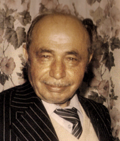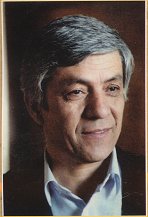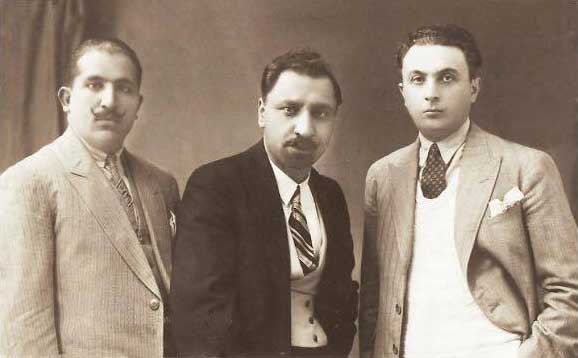Abdul Rahman Zabihi (1920-1980)
Abdul Rahman Zabihi (1920-1980)

Abdul Rahman Zabihi (Kurdish: Ebdul Rehmaní Zebíhí, ئهوڕحمانی زهبیهی) was born in Mehabad in 1920. He was fluent in Kurdish, Persian, Arabic and Turkish. He was also familiar with English, and French. His linguistic effort to the development of the Kurdish language concentrated most in dialectology and lexicography. Zabihi is the author of one of the best Kurdish-Kurdish dictionary.
A landmark in Kurdish lexicography was set by Zabihi’s (1977) monolingual work, which is modeled on, and meets the standards of Le Petit Larousse (the author has also used, as a model, M. Mo’in’s monolingual Persian dictionary, Farhang-i Farsi which is as well based on Le Petit Larousse). Monolingual lexicography has now become an established practice due to the pioneering work of Khal (Xall) and the able use of Kurdish in definitions by Zabihi, who has introduced refined techniques into Central Kurdish dialect “Sorani” lexicography.1.
Zabihi’s dictionary is the only on which has provided labelling of the parts of speech (including, also, transitivity, infinitives, three types of adjectives, ect.) and, in the case of compounds and derivatives, has analyzed them into their constituent morphemes. 1
Zabihi’s planned ten-volume work went trough Kurdish beginning with the Arabic letter hamza / ئـ /, i.e., the words with initial vowels /a,u,ú,e,i,é,í/ and /b/1. Unfortunately he managed to publish just two volumes of his work only. The rest of this pioneer work was never published. Zabihi published the first two volumes of his dictionary by his own money, but the Kurdish Scientific Academy in Baghdad which was active at that time arranged to print that in its printing house.
Mr. Zabihi was a member of leading committee of the first nationalist political organization in eastern Kurdistan, “Komelley Jhiyanewey Kurdistan” (Komelley Jh.K.). He became chief-editor of Kurdish magazine Níshtiman which was published July 1943 to spring 1944. He manages to publish 9 issues of the magazine.
In December 1945 a new Kurdish political party KDP-IR was established in Mehabad by President Qazi Muhammed in conjunction with the establishment of the Kurdish Republic in eastern Kurdistan (December 1945 to December 1946). Zabihi was also played an active role in the republic. After the collapse of the republic, he went to exile in southern Kurdistan, where he became actively involved in the liberation movement again. Zibihi became a member of the political Bureau of the Kurdish Democratic Party KDP-IR. During the period of the monarchy in Iraq he was forced to leave the country, he found himself in Syria. After the fall of the monarchy in Iran in 1979, Zabihi returned to eastern Kurdistan.
It did not take long when the new established Islamic Republic crush the Kurdish uprising in Eastern Kurdistan by exposing a war as their previous monarchic masters. Zabihi went to exile again in Baghdad in 1980. There is no news from Zabihi since 1981.
Publications
- Qamúsí zimaní Kurdí, Ebdu Rehmaní Zebíhí, Dubare capí 1988
This biography was prepared by Dilan Roshani
References
- Dr. A. Hassanpour, Nationalism and Language in Kurdistan, 1918-1985, San Francisco: Mellen Research University Press,
- The life of Abdul Rahman Zabihi “Ulama” (1920-1980)], Ali Kerimi (ed.), “Jiyan ú Beserhatí ‘Ebdul Rehmaní Zebíhí ”Mamosta ‘Ulema,” Göteborg, Sweden, Zagros Media, 1999


